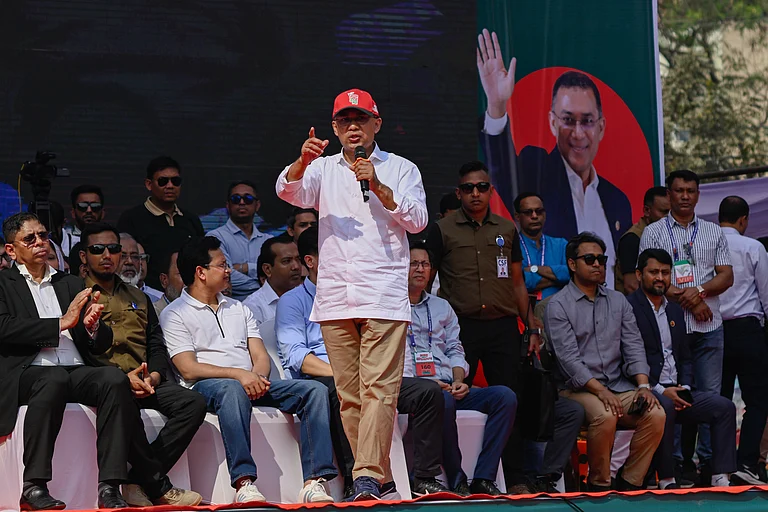Somewhere midway in the plot in Childhood’s End, a classic sci-fi novel by British writer Arthur C. Clarke, planet Earth has been peacefully taken over by a superior alien species.
The aliens, ‘Overlords’, as the 1953 novel describes them, go on to familiarise themselves with the way their subjects on earth go about their lives. In course of satiating their curiosity about the native species, the Overlords attend a musical concert. Incidentally, music, as a concept, is alien to the “highly cerebral” aliens, who had just conquered the earth and rendered the space race between the United States and the Soviet Union infructuous.
That is the context against which Dr Oliver Wolf Sacks, a renowned British neurologist known for his exploration of the relationship between the human brain and music, makes his point to underline the importance of music to the existence of human beings. “We may imagine the Overlords ruminating further, back in their spaceships. This thing called ‘music,’ they would have to concede, is in some way efficacious to humans, central to human life. Yet it has no concepts, makes no propositions; it lacks images, symbols, the stuff of language. It has no power of representation. It has no necessary relation to the world,” Sacks says in the preface of his book, Musicophilia: Tales of Music and the Brain, while explaining the possible dilemma faced by the alien overlords after they return from the concert, still not knowing what music brings to the table of human civilisation. The book, a New York Times bestseller, probes the immense ability of music to heal or haunt people.

The efficacy of the research on music and its impact on the human mind and society by Sacks and others like psychologist Jakob Lusensky has not gone unnoticed, according to Divya Singhal, Professor, who heads the Centre for Social Sensitivity and Action at the Goa Institute of Management (GIM), the coastal state’s top B-school.
Singhal runs the ‘Music and Management’, an elective course, at the institute, which encourages students to explore music as an effective tool for mastering business skills and management learning. Speaking to Outlook, she says, “There are different modules in this course. One module talks about music and its relevance in marketing. The second module speaks about music and its connection with social change. Another one talks about how music has such a huge impact on emotions. As a course, this module gives students an abundance of interesting ideas and exposes them to the true potential of music as a tool in business.”
Business education, opines Singhal, could not be isolated from the goings-on in society, which made humanities a critical component in a B-school’s curriculum. It is an essential element, which she says, can help institutes to steer clear of a siloed approach to learning and encourage sensitivity amongst students.

“So, despite a high-paying job and a quality education, if a manager does not emerge as a good human being and a respectful citizen, it can be considered a failure. We can bring about good leaders only if we integrate humanities, social sciences and knowledge about the local environment (in the curriculum),” she adds.
Singhal also holds that the ingredient of sensitivity, which music tends to instill in an individual’s personality, can push one towards a new life perspectives, address problems at hand anew and help deal with them with a sense of empathy.
“When humanities is incorporated in a module, its more from perspective-building purposes, i.e. to give (students) a horizon and initiate a sense of creativity in them. You cannot imagine an aspiring manager graduating from a business school with absolutely no idea about the real world and its hardships. He or she would not be able to handle a responsibility adequately without having any knowledge about the cultural contexts,” she says.
Quoting studies conducted by Dr Sacks on how music activates various areas of the brain, the academic backs the GIM’s decision to incorporate music in the B-school’s elective syllabus based on studies interlinking the power of music to improvement of businesses. According to her, using music to teach students ethical management practices might appear to be a less daunting task.
The B-school’s unique strategy of infusing music in a management module seems to have clicked with students like Anushtha Sharma, who joined the institute a couple of years back.
Sharma wanted to suit up for a life and a career as a consultant. She liked music, wrote songs and was even a lead singer for OxyGIM, the institute’s in-house band, after she joined the course. So, when she saw her hobby, which was music, interplay with her professional pursuit, management, in one course module, she signed up for it.
One of the early lessons Sharma learnt was about rap music and how the genre had emerged as a lyrical language of defiance and a pushback against the suppression by the mighty. And why the tune of a national anthem tends to bind a country and its people together.
“We also studied how the whole country is bound by patriotism through music. Be it the national anthem or other compositions by great artists. That is a sense of belongingness which music provides and that is very important,” Sharma tells Outlook. She also wrote and sung a song ‘Aaj badalna hoga’ (The present has to be changed) for the institute’s band, rooting for sustainable practices.
Music, she says, is almost an integral part of advertising, whether it is songs, jingles or compositions, which can make or break a product or a service. Take, for instance, the Airtel ad with its signature ringtone, which became synonymous with the telecom service, or the National Egg Co-ordination Committee’s popular advertising push to make eggs part of the staple diet in India with its jingle, “Sunday ho ya Monday, roz khao andey (Whether it’s Sunday or Monday, eat eggs every day)”.
Music has potential to play a much broader role in social reformation, according to Sharma. “Music can also bring about change in society, when it comes to dealing with issues like child labour or female foeticide. As managers, we are also groomed to become responsible citizens. We have a certain responsibility to give back to society. This component is a very crucial part of this particular module,” Sharma adds.
According to Singhal, the absence of humanities in a business school curriculum could potentially alienate students from getting to grips of the changing economic, social and political needs of the society. “They will only have their siloed approach of their functional discipline. But today’s world is more interconnected and more interdisciplinary. It is very important to accommodate subjects like ethics, culture, political science into business education,” Singhal further says.
The phenomenon of ‘sonic branding’ or ‘sonic signature’, which deals with how a specific sound or specific sets of sounds can resonate with a brand, Singhal says, also accentutes the linkages music has with business building.
(This appeared in the print edition as "Learning to the Sound of Jingles")



























